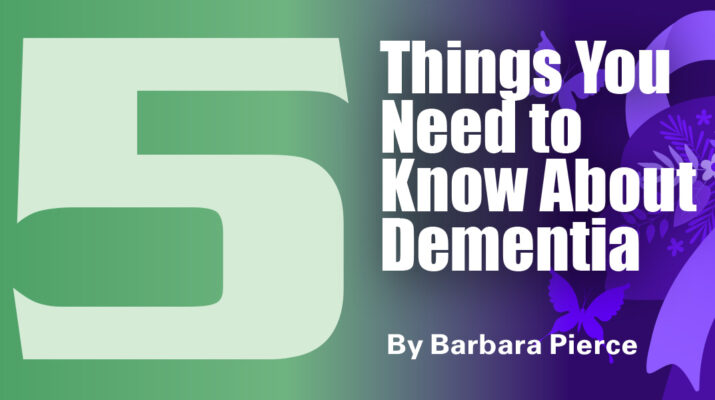By Barbara Pierce
A new study forecasts a surge in the number of people who will be diagnosed with dementia, according to recent reports. The specter of dementia looms larger than ever.
We’ve asked Katrina Kapustay, director of care and support, Alzheimer’s Association, Central New York Chapter, whether there is a surge in the number of those being diagnosed and what is important for us to know about dementia.
1. More people have been diagnosed
“Yes, the number of those diagnosed with dementia is increasing,” Kapustay said. “There are a lot of reasons for this increase. Age is a primary risk factor and people are living longer. Also, there is an increased awareness of dementia signs and symptoms. Those two things are the primary reasons for the increase.”
2. Everyone experiences it differently
According to the Alzheimer’s Association, everyone experiences dementia differently. The type of dementia also affects people differently, especially in the early stages. Common early signs and symptoms include:
• Memory loss, forgetting things that happened recently, asking the same question over and over.
• Challenges in planning or solving problems, struggling to make decisions, solve problems or complete familiar tasks, such as following a recipe, keeping track of bills, taking longer to do things.
• Confusion with time or place, losing track of dates, seasons, forgetting where they are.
• Misplacing things and losing the ability to retrace steps; putting things in unusual places.
• Decreased or poor judgment and decision making; using poor judgment in dealing with money, paying less attention to grooming.
• Problems with language and communication; difficulty finding the right word, struggling to follow a conversation.
• Mood changes or difficulty controlling emotions, becoming usually anxious, irritable, sad or frightened, losing interest in things, personality changes.
• Trouble misidentifying things, vision problems, hallucinations, trouble reading, driving, judging distance.
• Withdrawal from work or social activities.
3. Early diagnosis can make a difference
“It’s important to get that diagnosis as early as possible,” Kapustay said. “That’s because medication can slow down the progression of the disease, as well as helping with your quality of life and masking symptoms.”
“There are a lot of new medications in stages of clinical research,” she added. “This is one more tool that helps us. Also, it’s important to go through the steps leading to a diagnosis as the doctor will look at all the possible things that could be going on with you. For example, depression will cause memory loss; dehydration can cause dementia-like symptoms, as can vitamin deficiency or thyroid deficiency. Your doctor will rule out all the other possible causes of your symptoms.”
“If you’re diagnosed, you can get a care circle — a circle of support to help you through your journey,” she continued. “We have a 24/7 hotline, call if you have questions. If you’re having a slough of emotions at 2 a.m., call us. We give free education about what you should plan for, and it’s confidential. Also, we have confidential support groups in Central New York; many are virtual.”
4. Alzheimer’s is the most common type of dementia
“It’s important to talk to your doctor,” Kapustay said. “Any doctor can diagnose dementia.”
Doctors make a diagnosis based on a careful medical history, a physical examination, laboratory tests and the characteristic changes in thinking, day-to-day function and behavior associated with each type of dementia.
Doctors can determine that a person has dementia with a high level of certainty. But it’s harder to determine the exact type of dementia because the symptoms and brain changes of different dementias can overlap.
Dementia is an umbrella term for any severe decline in mental abilities due to the brain’s physical deterioration. Alzheimer’s disease accounts for 60%-80% of cases. Vascular dementia, the second most common cause, occurs because of microscopic bleeding and blood vessel blockage in the brain. Frontotemporal dementia is a rare form of dementia that tends to occur in people younger than 60. Lewy body dementia is a form of dementia caused by abnormal deposits of the protein alpha-synuclein, called Lewy bodies.
5. If you have a brain, you’re at risk
“Anyone with a brain is at risk,” Kapustay said.
While there’s no surefire way to prevent dementia, lifestyle modifications can reduce the odds al dementia. These changes include being physically active every day, improving your heart health by controlling high blood pressure, diabetes and weight, eating a nutritious diet, avoiding smoking, limiting alcohol, protecting your hearing, staying socially active and engaging in learning and mental stimulation.
The Alzheimer’s Association 24/7 Helpline (800-272-3900) is available around the clock, 365 days a year. Through this free service, specialists offer confidential support and resources.

